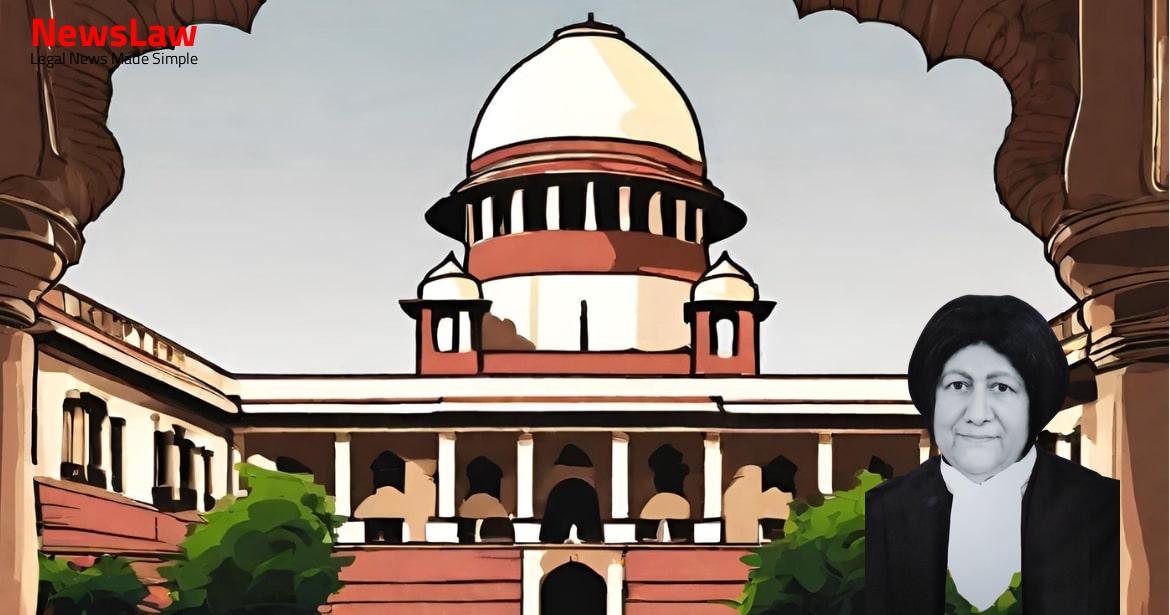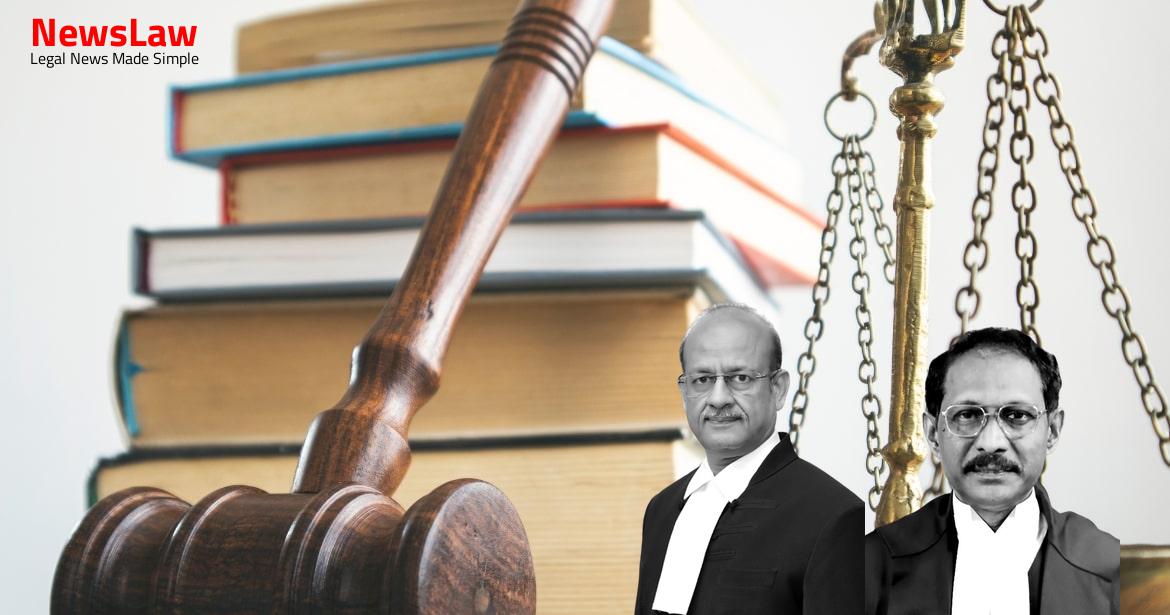In a significant ruling by the Supreme Court of India, a dispute over ownership transfer involving a Bank and an Insurance Company was resolved. The case highlights key issues surrounding insurance claims and the transfer of ownership. Stay informed about the legal intricacies in this landmark decision. #SupremeCourt #InsuranceDispute #OwnershipTransfer
Facts
- The vehicle was put up for auction on 31 March 2006 and purchased by the appellant for Rs 2,42,000.
- Possession of the vehicle was handed over to the appellant on 7 April 2006
- The appellant lodged a First Information Report about the stolen vehicle on 14 June 2006.
- The insurance claim for the stolen vehicle was rejected on 30 April 2008 due to ownership and financial interest issues.
- The insurance policy reflected the name of the third respondent as the insured, even though the appellant had paid the premium and registered for insurance.
- The first respondent rejected the insurance claim citing ownership being in the name of the third respondent and the bank’s financial interest.
- The appellant had obtained a certificate of exemption from the Regional Transport Authority for transferring the registration certificate to its name.
Arguments
- Appellant purchased the vehicle in an auction sale conducted by the Bank after the original owner defaulted on payments under a Hire-Purchase Agreement.
- Bank provided a certificate of possession to the appellant upon receiving full bid consideration at the auction sale.
- Bank informed the insurer that it no longer had a claim on the vehicle due to a deed of hypothecation with the erstwhile owner.
- Learned counsel for Respondent affirmed the view taken by consumer fora.
- Argued that there is no privity of contract between the appellant and the insurer.
Also Read: CRPF Act: Validity of Rule 27 for Compulsory Retirement – Case of Head Constable vs. CRPF
Analysis
- The coverage extends to property of a third party i.e. someone other than the insured.
- The principle that the insurer is not liable if there is no transfer reflected in the registration certificate.
- The dispute is about the liability of the insurer in case of a transferred vehicle ownership.
- The insurer’s contention is that unless the transfer is reflected in the registration certificate, they are not liable.
- The insurer repudiated the claim due to lack of insurable interest and ownership transfer proof.
- Chapter XI of the Motor Vehicles Act focuses on third-party risks only.
- The necessity for an agreement between the insurer and the transferee for covering risks other than third-party risks.
- Section 50 of the Motor Vehicles Act provides for the transfer of ownership of a motor vehicle.
- The transferor must report the transfer to the registering authority within 14 days if within the same state, or within 45 days if outside the state.
- The transferee must report the transfer to the registering authority within 30 days.
- Consequences of not fulfilling the obligation include a requirement to pay a prescribed amount under section 177.
- Section 157 deals with the transfer of the certificate of insurance when ownership of the vehicle is transferred.
- Chapter XI provides for compulsory insurance of vehicles to cover third-party risks.
- The definition of ‘owner’ in Section 2(30) plays a crucial role in determining the owner for insurance purposes.
- The owner is the person in whose name the motor vehicle is registered, with exceptions for minors and in cases of hire purchase, lease, or hypothecation agreements.
- Silence to an insurance proposal does not denote acceptance; acceptance must be communicated to the offeror.
- Mere receipt and retention of premium or preparation of a policy document does not constitute acceptance of insurance.
- Acceptance of insurance must be signified by some act agreed upon by the parties.
- Insurance policies covering other risks are part of the contract between insurer and transferee.
- Third-party claims under Chapter XI insurance policies are treated differently as per the judgment in Complete Insulations (P) Ltd case.
- The insurer’s basis for repudiating the insurance claim was found to be unsustainable.
- The appellant has agreed to provide indemnity to the insurer against any claims from the third respondent.
- The insurer cannot reject the appellant’s claim by arguing that their liability is only to the third respondent, who no longer has ownership of the vehicle.
Also Read: DAMEPL vs. DMRC: Curative Petition and Arbitral Award Restoration
Decision
- The transfer of the vehicle is not in dispute.
- There shall be no order as to costs.
- The claim in the amount of Rs 2,42,000 is allowed with interest at 9% per annum from the date of claim lodgement.
- The loss of the vehicle occurred close to the date of auction purchase.
- The appeal is allowed with the above terms.
Case Title: M/S BALWANT SINGH AND SONS Vs. NATIONAL INSURANCE COMPANY LTD
Case Number: C.A. No.-005998-005998 / 2019



